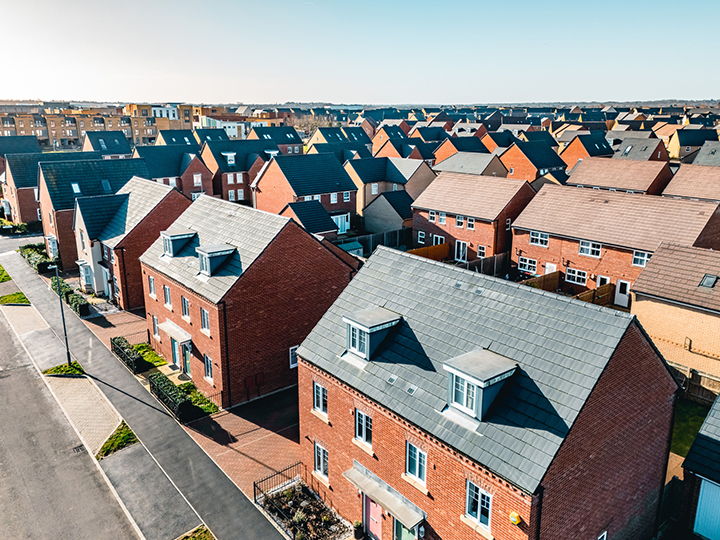Samsung has released the latest data from its Smart Home Buyer Index 2024 (SHBI), showing that 79% of those surveyed say they want a smart home, indicating the strength of the market opportunity for developers and home builders.
Furthermore, they are willing to pay an average premium of 7.7% on the average UK house price of £282,776, which is a value of approximately £21,774. With the smart home market predicted to show a compound annual growth rate of 11.66% between 2024 and 2028, generating revenues of approximately £8.6 billion in 2024 alone, it's clear that this movement is accelerating.
Financial concerns were a top concern among those looking to buy a smart home: In addition to 63% wanting the technology to save them money, nearly 70% of respondents cited energy efficiency as their main motivation for using smart technology, and 84% wanted to save money on their energy bills.
Interest in energy-efficient devices and appliances is supported by Samsung's search volume analysis, which shows that searches for smart energy appliances increased by approximately 60% from April 2023 to April 2024, led by air-source heat pumps. Search volume for air-source heat pumps increased 173% year-over-year, surpassing searches for smart meters.
The focus on energy efficiency should come as good news for the industry as it prepares for the current UK government's Future Homes and Buildings Standards, which will require new homes built from 2025 onwards to emit 75% to 80% less carbon emissions than those built under the previous regulations.
This comes into effect in 2025, and home builders and developers who incorporate the right future-proof technologies can support those looking for energy efficiency and cost savings in the future, especially as new technologies become available.
Mark Seaman, head of Samsung's B2B integrated offerings team, commented: “Samsung's Smart Home Buyer Index uncovers consumers' key priorities for smart homes. We are a key partner to developers and homebuilders, helping them deliver innovative, smart living solutions. By providing insights such as this, Samsung can help the industry keep up with changing consumer demands. This data shows that understanding the importance consumers place on their smart homes can increase value for rental and sales prices, helping to improve return on investment for homebuilders and developers.”
But consumers' finances shouldn't be the only consideration when designing their home: after energy efficiency and cost savings, home security is the top reason for considering installing smart technology, with 75% of people wanting connected security features like doorbells and cameras to give them peace of mind and protect their homes.
Creating connectivity within the home provides a secure network that can be accessed from phones and other devices, giving a greater sense of security and control.
SHBI also uncovers trends across age groups: smart homes aren't just for young people – there are an increasing number of people aged 65 and over who want to take advantage of smart technology in their homes.
It's therefore crucial that the industry doesn't just consider the technology needs of younger generations, but prepares to cater for the needs of all age groups. This is particularly noteworthy given that the UK's elderly population is expected to grow to around 26% by 2066.
The UK construction industry is expected to see a 21% increase in new work output over the five years from 2024 to 2029. Those responsible for new build projects would be well advised to heed the SHBI's view that technology is the main reason people want to move to new property.
The survey found that 80% of people are attracted to such homes, with 36% citing the amount of smart technology that comes pre-fitted as the main reason. A further 53% believe that new developments are designed for modern living and likely include tech features, while 57% cite energy efficiency as a motivator for moving to a new development.
When asked specifically about new construction homes, 40% of people aged 65 and over said they would be motivated to move to a new home if technology was already built in, again demonstrating the importance of incorporating technology into all types of housing, including retirement housing.
Mark continues, “It's important that homes support ongoing technological developments and are able to adapt as smart devices and appliances evolve. Instead of just focusing on short-term technology delivery, the focus should be on ensuring homes are future-ready. It's clear that today's consumers are increasingly aware of AI's potential, with 61% of survey respondents expecting AI to become more important in the coming years, even if they're not using it now.”
“The UK housing market has been under huge scrutiny in recent years, with the rising cost of living, rising inflation and volatile energy prices also remaining top challenges for many people. There is a real opportunity for developers and housebuilders to work with the right partners, integrate technology from the start and take a digital-first approach to build the homes of tomorrow today.”

